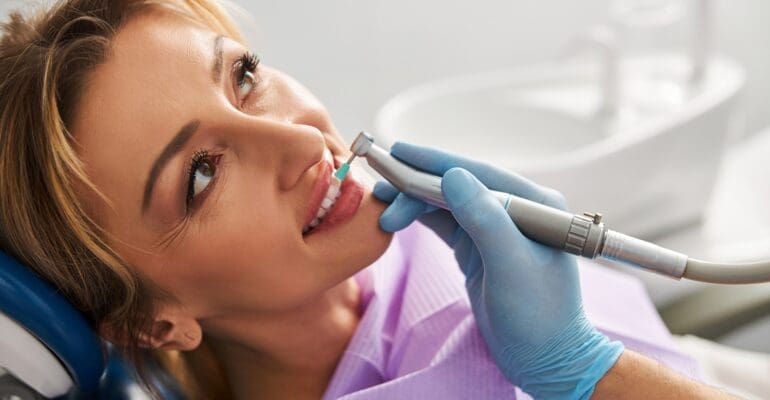Dental anxiety is a common issue that affects millions of people worldwide. The fear of visiting the dentist for a check-up or treatment can lead to chronic dental problems and poor oral health. However, modern dentistry offers a fantastic solution to ease patients’ anxieties and facilitate dental care – sedation dentistry. Our team at Your Dental Health Partners is committed to ensuring your dental visits are comfortable and stress-free. In this article, we will explore the benefits of sedation dentistry for patients with dental anxiety or phobia.
Sedation Dentistry–How It Helps You Conquer Anxiety
Sedation dentistry refers to using medication or sedative agents to help patients relax during their dental procedures. It is available in various forms, from mild sedation, which keeps you awake but relaxed, to deeper sedation methods that may cause drowsiness. By alleviating your fears and anxiety, sedation dentistry allows our skilled professionals to perform a range of dental treatments, from simple cleanings to complex procedures.
One of the most significant benefits of sedation dentistry is that it allows individuals with dental anxiety or phobia to undergo necessary dental treatments. By making their dental visits more comfortable and less stressful, sedation dentistry can be crucial in preventing oral health issues and maintaining a healthy smile.
Additionally, sedation dentistry can significantly benefit patients with a strong gag reflex, those who suffer from dental hypersensitivity or pain, or individuals who need multiple dental procedures but have limited time to complete them.
Some common types of sedation used in dentistry include mild sedatives such as nitrous oxide (also known as laughing gas), oral sedatives, and intravenous (IV) sedation for a deeper relaxation effect. Each sedation method offers various advantages, and your dentist will help you select the most appropriate type based on your needs, health history, and the type of dental procedure you’re undergoing.
In summary, sedation dentistry is a valuable tool for patients with dental anxiety or phobia, allowing them to receive the necessary dental care without fear or distress. By providing a comfortable and relaxed environment, sedation dentistry improves the patient experience and enables our dental professionals at Your Dental Health Partners to maintain your beautiful, healthy smile. Stay tuned for our following blog posts, where we will dive deeper into the different types of sedation dentistry and their specific benefits.
Understanding Dental Anxiety and Phobia
Dental anxiety and phobia can manifest in various ways, from mild apprehension to an intense fear that prevents individuals from seeking dental care. Understanding the root causes of dental anxiety and phobia can help shed light on how sedation dentistry is pivotal in overcoming these obstacles.
- Common Causes of Dental Anxiety
- The Impact of Dental Fear on Oral Health
- Identifying Dental Anxiety and Phobia in Children and Adults
Types of Sedation Dentistry and Their Benefits
There are several types of sedation methods that dental practitioners can use based on the specific needs, health history, and anxiety level of the patient. The following discussion will focus on the most commonly used sedation techniques and their unique advantages.
1. Nitrous Oxide (Laughing Gas)
Nitrous oxide is a mild sedative inhaled through a mask placed over the patient’s nose. It helps patients relax during dental procedures while still allowing them to remain awake and responsive. The effects of nitrous oxide are reversible – once the mask is removed, the sedative effects wear off quickly, usually within a few minutes. This type of sedation is ideal for patients with mild anxiety or those undergoing routine dental procedures.
2. Oral Sedation
Oral sedation involves taking a sedative pill (such as Valium or Halcion) before the dental appointment. The medication helps patients feel relaxed and drowsy, though they remain conscious throughout the procedure. The level of sedation depends on the dosage administered. Oral sedation suits patients with moderate anxiety or requiring more extensive dental work.
3. Intravenous (IV) Sedation
IV sedation provides a deeper level of relaxation and is administered directly into the patient’s bloodstream via a vein. IV sedation allows the dentist to adjust the level of sedation during the procedure, ensuring the patient remains comfortable and anxiety-free at all times. This type of sedation is well-suited for patients with severe dental anxiety or those undergoing lengthy or complex dental procedures.
4. General Anesthesia
General anesthesia is reserved for specific dental procedures or patients with extreme anxiety who cannot tolerate conscious sedation. Under general anesthesia, the patient is completely unconscious during the dental process. This level of sedation requires specialized training and monitoring to ensure patient safety.
How to Prepare for Sedation Dentistry
For patients considering sedation dentistry, discussing their fears, concerns, and expectations with their dentist is essential. Proper communication is vital to determine the most appropriate sedation method and address potential risks.
- Discussing Anxiety and Medical History with Your Dentist
- Understanding the Risks and Benefits of Sedation
- Preparing for Your Appointment with Sedation Dentistry
Post-Treatment Care and Recovery
After undergoing dental treatment with sedation dentistry, patients may experience drowsiness or grogginess, depending on the sedation method used. Following specific recommendations and post-treatment care is crucial to ensure a smooth recovery.
- Monitoring Your Comfort Level After The Treatment
- Arranging for Transportation After Your Appointment
- Resuming Your Regular Dental Care Routine
Conclusion
Sedation dentistry offers a powerful solution for patients with dental anxiety or phobia, allowing them to receive necessary dental care in a comfortable and relaxed environment. Understanding the various types of sedation dentistry, their benefits, and the proper preparation and aftercare can help patients decide on the best option for their needs.
At Your Dental Health Partners, our experienced dental professionals are ready and willing to discuss your concerns and help you select the most appropriate sedation method for your unique situation. You can enjoy better oral health and maintain a healthy, beautiful smile without fear or discomfort by conquering your dental anxiety. Schedule an appointment with us for premier dental health services!









